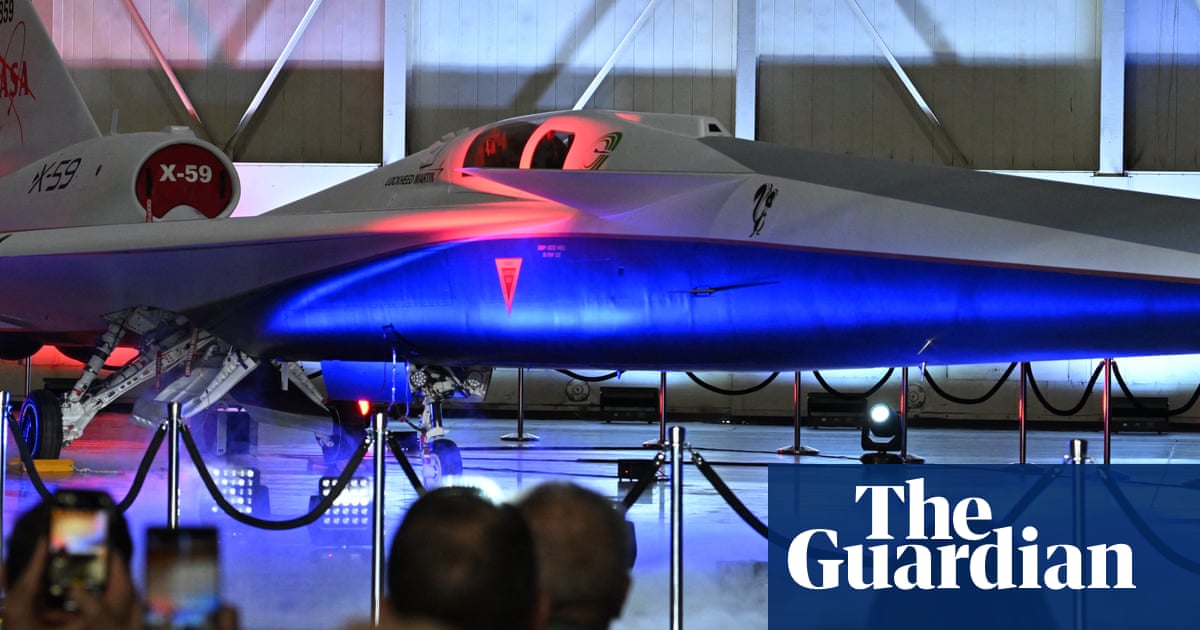- cross-posted to:
- astronomy@mander.xyz
- worldnews@lemmy.ml
- cross-posted to:
- astronomy@mander.xyz
- worldnews@lemmy.ml
In launch event on Friday, agency shared plans to test over US cities to see if it’s quiet enough by engaging ‘the people below’
Nasa has unveiled a one-of-a-kind quiet supersonic aircraft as part of the US space agency’s mission to make commercial supersonic flight possible.
In a joint ceremony with Lockheed Martin Skunk Works in Palmdale, California, on Friday, Nasa revealed the X-59, an experimental aircraft that is expected to fly at 1.4 times the speed of sound – or 925mph (1,488 km/h).
The aircraft, which stands at 99.7ft (30.4 metres) long and 29.5ft wide, has a thin, tapered nose that comprises nearly a third of the aircraft’s full length – a feature designed to disperse shock waves that would typically surround supersonic aircraft and result in sonic booms.



Not likely. Jet engines are crazy efficient compared to rockets.
And as far as I know there are only 2 or 3 companies who are even attempting to make a fully reusable rocket, and it’s really hard.
(Those companies being SpaceX and Stoke aerospace, but Stoke is a long way off. Relativity space was going to do full reusability, but I think they dropped the plan.)
Wasn’t somebody developing an engine with two modes, an air breathing one and a rocket one?
Because suborbital flight is nowhere as hard as reaching a stable orbit (even LEO) and if your vehicle can operate in air-breathing mode most of the way up it needs not be anywhere as heavy since it doesn’t need to take that much oxidizer along.
What I’m talking about here is a problem around the same order of complexity as an intercontinental ballistic missile, not the same order of complexity as a space shuttle.
S.A.B.E.R. was the project name I believe, synergetic air breathing rocket engine.
Basically you intake air at lower speeds and transition to LOX when necessary.